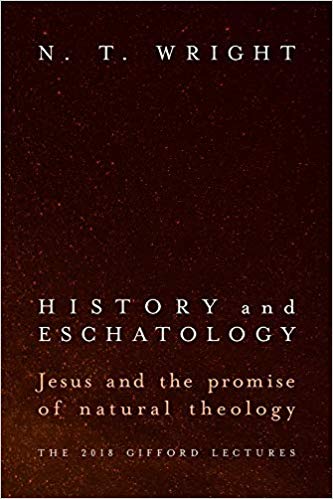As he sums up his argument in Chapter 8, Tom emphasizes the following: “What counts for the whole argument– the whole biblically based, theologically oriented argument– is new creation. Not skeptical historiography.not existentialized eschatology, but a new creation, a rescued, renewed and transformed creation in which the first creation, the ‘natural’ world is not cancelled out, as though by (in the modern sense) a ‘supernatural’ irruption or invasion, but rather rescued, put right and transformed. The point is precisely that, as well as the discontinuity implied by all those adjectives, there is also substantial continuity. Whatever the Creator will do in the end, this will not cancel… the first article of the Creed.” (p. 254).
So what’s been wrong with natural theology since at least Bishop Butler’s The Analogy of Religion in the 18th century? Tom sums up as follows: “My sense…is that if a ‘natural theology’ is seeking to find the building blocks for a doctrine of God from within the present creation, then– in terms of the model I am outlining— such an attempt must be seen as trying to have the full eschaton in advance. It is attempting to leap forwards to the final moment when God will be ‘all in all’, but without going by the cruciform route the NT takes to get there. Cognate with this problem is the possibility of a ‘natural theology’ trying to discern the being and activity of God by rational enquiry alone, screening out once more the epistemology of love which, as I have insisted all along, belongs at the heart of true knowledge. Thus not only will rational, left-brained knowledge not be able to grasp what is already true or see the significance of the broken signposts….It will also, certainly, be unable to glimpse the eschatological promise of new creation.”
“At the heart of early Christian theology we find precisely the cosmological overlap of heaven and earth and the eschatological overlap of present and future, both of them focused on Jesus and the Spirit and both of them offering a vision of the world and God, and of the relation between them, which enables us to open up the modern questions of ‘natural theology’ in a whole new way.” (p. 267). We must learn again to think God’s own thoughts about these things after them, rather than trying to reason our way up to God. Amen and amen.












